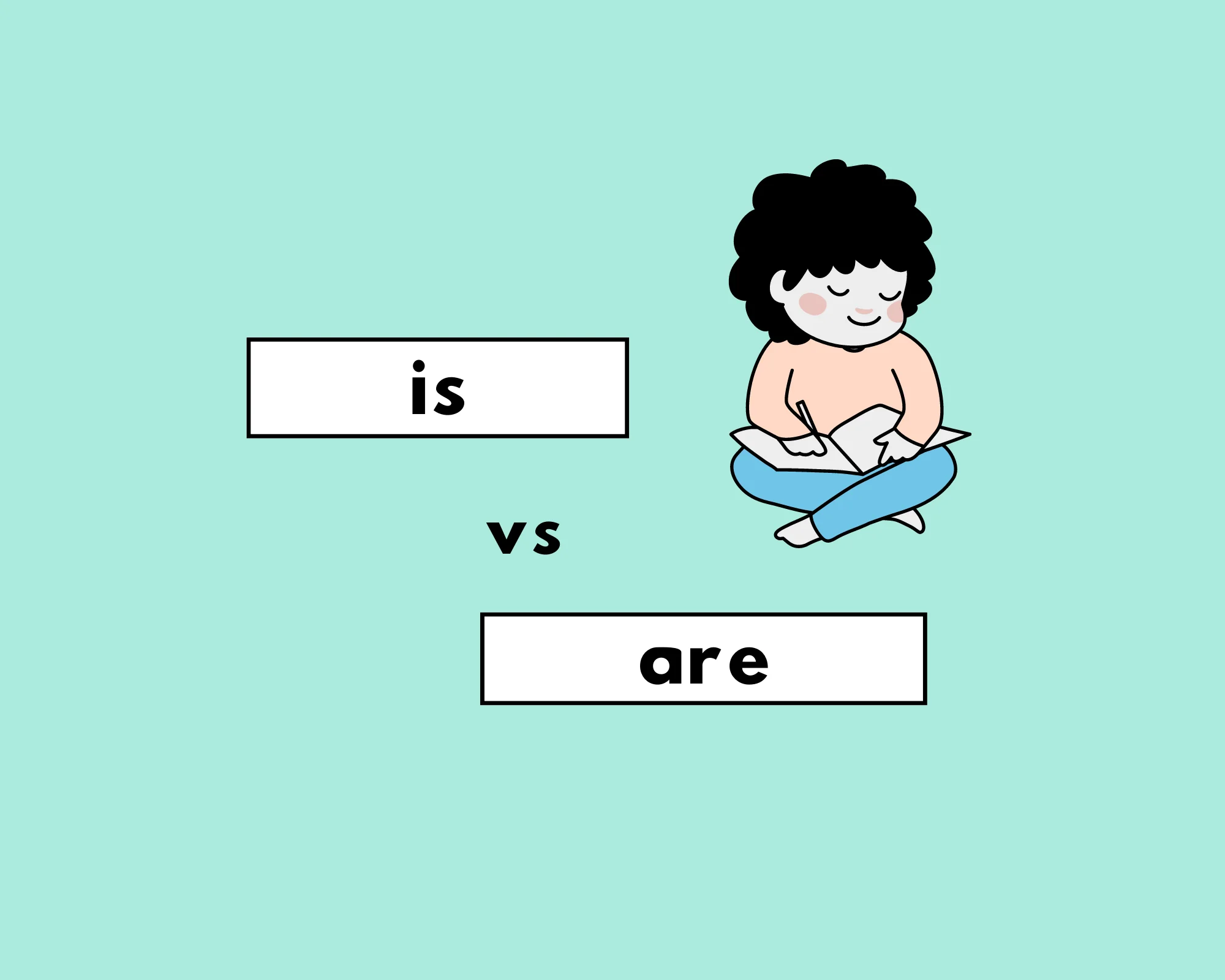Contents
Toggle
When to use “is” or “are”
Use is for singular nouns, and are when the noun is plural. This rule is based on subject verb agreement; in other words, the number of subjects and actions (verbs) referenced must match in number.
Think about it this way: the action (and by action I mean anything that we, as people, do and are capable of doing), cannot be more in number than the people that are present to physically do or perform them.
Sam is excited about his first day of school.
(Sam is one person, and a single subject = is.)
The students are always misbehaving in this classroom.
(Students are plural: plural subjects = are.)
The dogs are barking in the backyard.
(Dogs = plural subject = are.)
Hopefully this is starting to make some sense! #Gflexyourgrammar
The rule
For singular subjects (that are in the third person), use the verb is (form of to be): Sam is excited about his first day of school. (Sam is one person, and a single noun = is.) If the noun is plural, use are: The students are always misbehaving in this classroom. Students are more than one student: plural subjects = are.
The dogs are barking in the backyard.
(Dogs = plural subject = are.)
Hopefully this is starting to make some tense! As in… verbal tense!
The verb “is”
Is is a form of the verb ‘to be.’ To be describes the state of being, and the most basic action possible (when you think about it.) The state of being changes based on who it is that we describe as being: are we talking about a single person, or group of people? Is there one subject, or several?
Existing is an action, though that may seem counterintuitive, the verb ‘to be‘ simply describes that of being or existing. All types of things can ‘be‘: trees are, my first grade teacher still is (I think?) Why, then, is ‘being’ modified or conjugated in one case, and not the next? When we speak or write, we refer to either one subject or multiple/more than one.
One person can only do one thing at any given moment in time. The English language reflects that through subject verb agreement, and verb conjugations. Is is the first person singular form of the base verb of being, and “is a word used to describe an action, state, or occurrence.” The verb ‘to be’ modifies based on if the noun is singular or plural. Is = singular; are = plural.
I am a student. (I = first person singular)
We are students. (We = first person present plural)
You are a student. (You = second person singular and plural)
You all are students. (You = second person singular and plural)
He is a student. (He = third person singular)
They are students. (They = third person plural)

subject verb agreement: when to use is or are
Subject verb agreement is as clear a phrase as it can be: the subject and verb of the sentence must agree with one another in count or quantity.
Think of it this way: when we speak, it’s either about one thing, or more than one thing, (or person, place, idea, you get the point.) When we describe something that relates to one noun or subject, it’s required that the action follows suit, and remains in the singular case.
There is a dog barking on the street. (singular)
There are dogs barking on the street. (plural)
Is describes one person/place/thing/idea. If it’s one thing you’re describing, use is. If it’s more than one thing that’s referenced, use are.
Test your knowledge and understanding of there is vs there are:
Origin of there/is
There derives from the Old English þær, “in or at that place, so far as, provided that, in that respect.” The verb is derives from the Old English es-.
Keep learning!
Sources
- Origin of the verb is
- Definition of is
- Definition of there
- The verb to be










